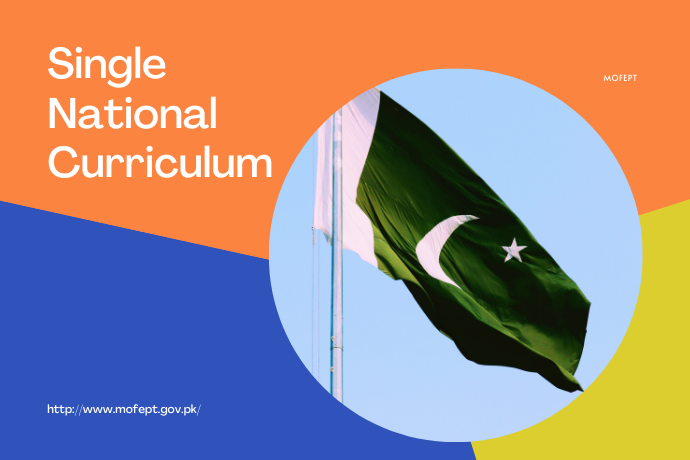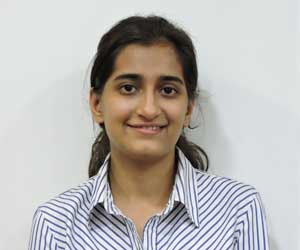Education is considered to be a potent force that paves the way for political, social and economic development of any country. A viable education system enables the nation to achieve its national goals and is a key indicator of progress and prosperity. However, in Pakistan the education system remains in shambles. The statistics tell the dismal state of education in Pakistan. Pakistan is ranked 154 out of 189 countries in the United Nations Development Programme’s (UNDP) Human Development Index (HDI) rankings[1]. Pakistan has not exhibited any progress in important educational indicators, such as literacy rate, gross enrolment ratio, and expenditure on education, as compared to its nearby regional territories. It is also interesting to see that Pakistan’s literacy rate, at 57%, lags well behind its neighbourhood.
The primary school dropout rate is 22.7%, which is alarming given it as at the stage of developmental learning. As far as UNICEF is concerned Pakistan consists of world’s second highest number of out-of-school children (OOSC) with an approximated 22.8 million children aged 5-16 not attending school. [2] The situation is exacerbated by striking inequalities based on sex and socio-economic status.
When in August 2018, Pakistani Prime Minister Imran Khan and his party the Pakistan Tehreek -e-Insaf (PTI), assumed power they assured a series of educational reforms that would improve outcomes across the Pakistani schools and bridge the gap between the private and public educational institutions. It was also thought that it would reduce the fragmentation and inequalities of Pakistan’s school system and organize a modernized “uniform education system”.
PTI talked about initiating a Single National Curriculum (SNC) to reframe the education system in Pakistan. It means exactly the same education system for all students disregarding their economic and social background[3]. On August 16, 2021, Imran Khan officially launched the SNC and stated, “It will unify the country, remove class divisions, and eliminate the ‘mental slavery’ that the British colonial system of education had imposed” [4]. The statement by Ministry of Education underscores the fact that SNC is a historic initiative launched to eliminate class-based education system and constitute equal educational standards for all the students of Pakistan, regardless of race, class, gender, and any other arbitrary marker. However, since its inception the SNC has been enmeshed in controversies. There is a fundamental gap between the big talks about inclusion, diversity and mutuality and the ground reality. Both tell a clearly different story. The conceptualization and design of the SNC appears to be another attempt to further Islamize the society.
Under the SNC minorities find no space. The website of Ministry of Education talks about how SNC aims to disseminate the teachings of the Quran and Sunnah and the vision of the Quaid[5]. However, the SNC does not provide any separate plan for non-Muslims for their religious education but in fact it has obliged them to follow the same religious content taught to Muslim students and that is a blatant violation of Article 22 of Constitution. Peter Jacob, Lahore-based public policy expert and a team of educationalists have researched and found out that under SNC 9% of the content of class 3 English textbooks is a clear violation of the Article 22[6].
PM Khan is following the footsteps of extremist regime of Gen Zia-ul-Haq. Zia’s education policy stated that the curriculum would be revised around Islamic thought by giving education an ideological orientation. In SNC, curriculum is even more Islamized. The syllabus of Islamic studies has been enhanced and magnified by including complete recitation of the Holy Quran, sayings of the Holy Prophet (PBUH) and some chapters on the life of prophets. Many teachers have complained about the SNC’s complex and lengthy content which, according to them, is quite arduous to understand and teach. The students face great difficulty in studying and comprehending complex material forcing them to memorize. Pervez Hoodbhoy nuclear scientist and Pakistani human rights activist, pointed out that “religious topics permeate books teaching Urdu, English and general knowledge”. Abdul Hammed Nayyar a physicist and education consultant noted that public and private schools would be teaching more religion and Islamiat than being taught even in madrassahs. [7]”
Further the books approved by SNC have been subjected to criticism for promoting regressive and orthodox roles of women. The Women Action forum has criticised the SNC and pointes out that the curriculum is centered on ideological imperatives and in future this will lead to a society with divided and gendered thinking. Textbooks in Pakistan are gendered as women have designated the stereotypical role of mothers, daughters, wives, and instructors. The acts of recreation or exercise do not involve them. In the textbooks boys are depicted playing and exercising, while girls are only visible as spectators in photos.
SNC is also inimical to the 18th Constitutional Amendment wherein Provinces were given the exclusive right to design their curriculum, syllabus and define their education standards. The Federal Government has thus transgressed on the rights of the provinces. It aims at imposing a single national narrative dominated by security, religion and a high dose of piety. The southern province of Sindh has rejected the SNC. The Provincial Education Minister Syed Sardar Shah on September 13, 2021 opposed and rejected the SNC in the Sindh Assembly. He stated education and curriculum were provincial subjects and hence the sole right to teach the respective mother tongue resides with the provinces[8]. It has further deemed it "haphazard" and "sexist."Parents and educationalists are also concerned that curriculum has snatched away the right of parents to choose the kind of education they want for their children.
The question that looms is that will the SNC resolve the structural flaws in the education system of Pakistan? Will it amend the dismal state of education? In Pakistan most public schools are in dire need of investment for the basic infrastructure such as toilets, libraries, IT labs, sports facilities, drinking water and even lavatories. No education policy in Pakistan has focussed on alleviating socio-economic gaps and no action plan has been proposed to reduce these gaps. Further, there is an urgent need to increase funding for education to at least four percent of the country’s GDP. The government has allocated an estimated 2.3% of GDP in the fiscal year 2019-20, which is the lowest in the region. Further, the Covid-19 crisis has exposed and exacerbated the precarious conditions of education in Pakistan. In 2020, the World Bank predicted that 930,000 children would drop out of primary and secondary education; Pakistan is globally the country where the highest dropout rate due to the Covid-19 crisis was expected.
An editorial in Express Tribune rightly points out “SNC is directly short of providing a holistic solution to the dwindling quality of education in the country” [9]. It further states that those behind the idea seem to be obsessed with bringing national integration through curriculum rather than fixing the core educational mess. Clearly the current development in the education is another attempt by Imran Khan for deeper Islamisation to establish “Naya Pakistan”. On October 10, 2021, Khan announced the formation of Rehmatul-Lil-Aalamin Authority- a council of mullahs and religious cleric. The new authority will monitor the curriculum being taught at schools and colleges and will also closely “check” contents run on media channels.
As Tilak Devasher in his book ‘Pakistan- Courting the Abyss’ points out that unless there is a basic change in curricula and textbooks, education would continue to result in bigotry, violence and hatred[10] . Hence, uncertainty prevails over the future of education system in Pakistan. SNC is going to be recipe for disaster.
References
[1]https://tribune.com.pk/story/2276065/pakistan-ranks-154th-on-uns-human-development-index
[2]https://www.unicef.org/pakistan/education
[3]https://idsa.in/idsacomments/imran-khan-single-national-curriculum-zakhter-010621
[4]Ibid.
[5]https://idsa.in/idsacomments/imran-khan-single-national-curriculum-zakhter-010621
[6]https://www.geo.tv/latest/348462-governments-single-national-curriculum-is-like-martial-law
[7]https://medium.com/the-turbulent-world-of-middle-east-soccer/comparing-textbooks-even-afghanistan-scores-better-than-pakistan-45d1d8ab6524
[8]https://www.dawn.com/news/1646304
[9]https://tribune.com.pk/story/2323910/snc-antidote-to-educational-malaise
[10]TilakDevasher (2016), Pakistan- Courting the Abyss, HarperCollins, New Delhipp 565
(The paper is the author’s individual scholastic articulation. The author certifies that the article/paper is original in content, unpublished and it has not been submitted for publication/web upload elsewhere, and that the facts and figures quoted are duly referenced, as needed, and are believed to be correct). (The paper does not necessarily represent the organisational stance... More >>
Image Source: https://educations.pk/blog/2021/08/23/single-national-curriculum-in-pakistan/











Post new comment